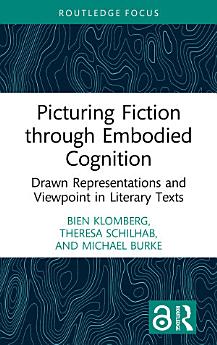Picturing Fiction through Embodied Cognition: Drawn Representations and Viewpoint in Literary Texts
เกี่ยวกับ eBook เล่มนี้
The book engages in critical dialogue with the perceived wisdom in stylistics rooted in Roger Fowler’s seminal work on deixis and point of view to test whether or not this theory can fully account for what readers see in their mind's eye and how they see it. The work draws on findings from a study of English and Dutch across a range of literary texts, in which participants read literary text fragments and were then asked to immediately draw representations of what they had seen envisioned. Building on the work of Fowler and more recent theoretical and empirical language-based studies in the area, Klomberg, Schilhab, and Burke argue that models from embodied cognitive science can help account for anomalies in evidence from readers’ drawings, indicating new ways forward for interdisciplinary understandings of individual meaning construction in literary textual interfaces.
This book will be of interest to students and scholars in stylistics, cognitive psychology, rhetoric, and philosophy, particularly those working in the field of embodied cognition.
The Open Access version of this book, available at http://www.taylorfrancis.com, has been made available under a Creative Commons Attribution-Non-Commercial (CC-BY-NC-) 4.0 license.
เกี่ยวกับผู้แต่ง
Bien Klomberg is a PhD candidate in the Department of Communication and Cognition at Tilburg University, the Netherlands. Her research focuses on conceptual blending and the comprehension of (dis)continuity in visual narrative sequences.
Theresa Schilhab is Associate Professor in Cognitive Biology at Danish School of Education (Aarhus University), Copenhagen, Denmark. In 2016 she achieved the higher doctorate (doctor pædagogiæ) in Educational Neuroscience on the monograph Derived Embodiment in Abstract Language (2017), which focuses on the biological perspective on language, and is co-editor of the anthology The Materiality of Reading (with S. Walker, 2020).
Michael Burke is Professor of Rhetoric at University College Roosevelt (Utrecht University), Middelburg, the Netherlands. He is the author of Literary Reading, Cognition and Emotion: An Exploration of the Oceanic Mind (2011) and the co-editor of Cognitive Literary Science: Dialogues between Literature and Cognition (with E. T. Troscianko, 2017).





